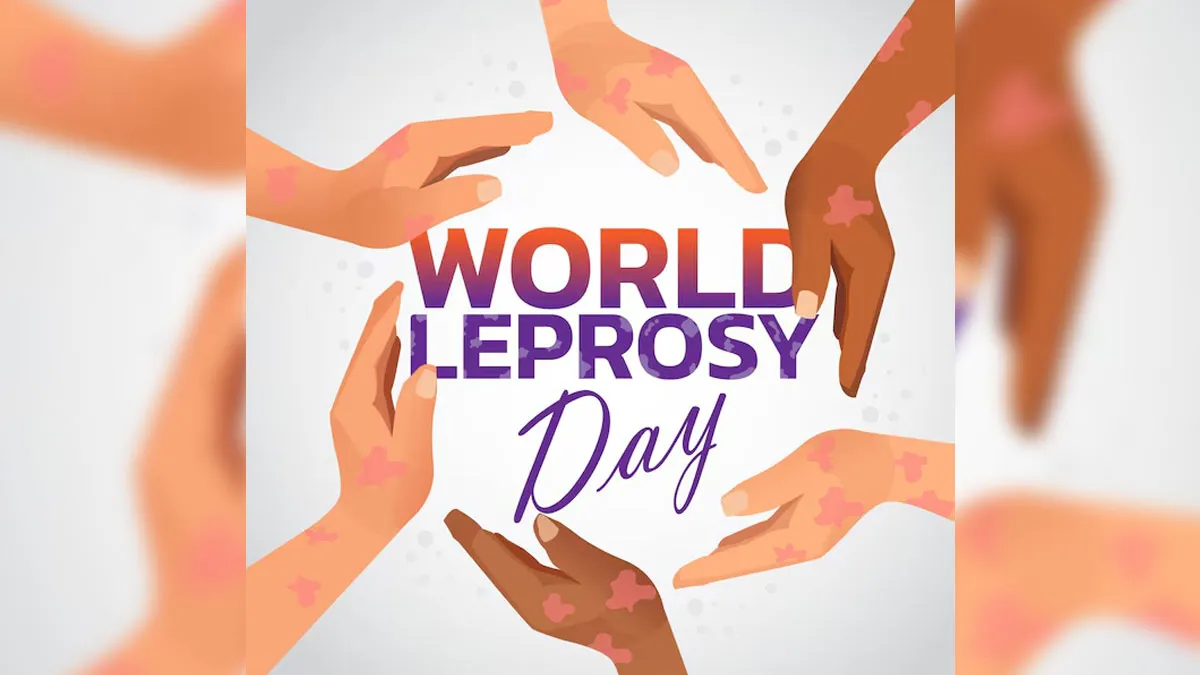World Leprosy Day is observed every year on the last Sunday of January, a day dedicated to raising awareness about leprosy, a disease that has been misunderstood and stigmatised for centuries. In 2025, this day falls on January 26, and it serves as a powerful reminder of the importance of ending the stigma surrounding leprosy and supporting those affected by it. The day calls for a united global effort to eradicate both the disease and the prejudice that often accompanies it.
World Leprosy Day 2025 Date

World Leprosy Day, observed on the last Sunday of January, is a globally recognised day focused on raising awareness about leprosy and the profound effect it has on individuals and communities. It’s a time to reflect on the challenges faced by those affected and to work toward ending the stigma associated with the disease.
World Leprosy Day 2025 Theme

Each year, World Leprosy Day has a specific theme aimed at inspiring action and reflection. In 2025, the theme is ‘Unite, Act, and Eliminate Leprosy’, according to the World Health Organization. This year’s theme calls for global unity and collective action in the fight against leprosy, with the ultimate goal of eradicating the disease and eliminating the stigma that surrounds it.
Don't miss: Budget 2025: 5 Things Women Can Expect From The Upcoming Financial Plan
World Leprosy Day History
World Leprosy Day was established in 1954 by French humanitarian Raoul Follereau, a man deeply passionate about improving the lives of people living with leprosy. Raoul Follereau, a renowed humanitarian, selected the last Sunday of January to honour Mahatma Gandhi, who passed away on January 30, 1948. This day was chosen to celebrate Gandhi’s legacy of compassion and his efforts to support those affected by leprosy. Mahatma Gandhi, the global icon known for his compassion and work to uplift marginalised communities. Gandhi himself was a vocal advocate for the rights of those affected by leprosy, emphasising their need for dignity and equal treatment.
According to the World Health Organization, “Jordan became the first country to be verified and acknowledged by WHO for elimination of leprosy, demonstrating what is possible with focused, concerted efforts. Additionally, in 2023, 56 countries reported zero new case of leprosy, a significant milestone.”
World Leprosy Day Significance
The significance of World Leprosy Day goes beyond just raising awareness about the disease. It’s a call to action to eliminate the misconceptions, fear, and prejudice that still surround leprosy.

The observance serves as a powerful reminder that health-related issues should never be viewed in isolation but in the context of social justice and human dignity. Leprosy-related stigma often means that people affected by it are denied opportunities for education, employment, and social interaction, which can have a profound impact on their mental and emotional well-being.
World Leprosy Day also aims to inspire the next generation of health professionals, advocates, and global citizens to continue the fight against leprosy. By educating the public, offering support to those affected, and encouraging government policies that combat stigma, this day plays a crucial role in the ongoing global efforts to end leprosy.
For more such stories, stay tuned to HerZindagi.
Image credit: Freepik

Take charge of your wellness journey—download the HerZindagi app for daily updates on fitness, beauty, and a healthy lifestyle!

Comments
All Comments (0)
Join the conversation